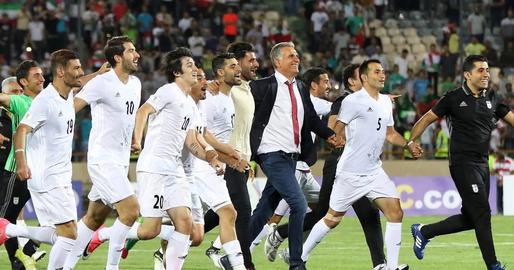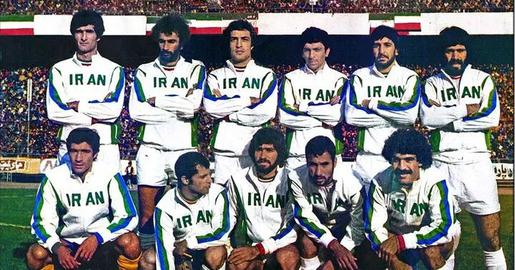This article is part of a 22-part miniseries on the history and stars of Iranian football released ahead of Iran's participation in Group B of the 2022 Qatar World Cup in November. You can explore the rest of the series here.
The Islamic Revolution signalled the beginning of a period of decline for Iranian football. In February 1979, the Takht-e Jamshid League, known among the world’s national football contests as one of the most professional, was interrupted and cancelled midway through.
Kambiz Atabai, the Pahlavi-friendly head of the Iranian Football Federation and of the head of the Asian Football Confederation at that time, fled Iran. Matches at the club level were largely suspended.
The next year, Iran sought to participate in the 1980 Moscow Olympic qualifiers without any training or friendly games to warm up. That February, head coach Hassan Habibi took some of the players to Bushsehr tto set up a training camp. But the local Islamic Revolution Association, which consisted of clerics and fanatics who supported Ayatollah Khomeini, said the camp represented a "betrayal of the Islamic nation" and attacked the site at night.
Habibi would later write in his memoirs that he then took team to Shiraz ahead of the contests. Against all the odds, Iran managed to advance in the qualifiers. But then, the Iranian government announced Iran would be "boycotting" the Moscow Olympics and ordered Team Melli not to attend.
Along with boycotting the international competitions, Hossein Abshenasan, head of the Iranian Football Federation at the time, introduced an unprecedented regulation known as the "27-year-old rule" in Iranian football. According to plan, no player over the age of 27 had the right to participate in the national team.
The rule was brought in with the intention of excluding Nasser Hejazi, but it also removed players like Ali Parvin from the Iranian national team. Mostafa Davoudi, then-head of the Physical Education Organization, also supported it.
In September 1980, Iran entered the Asian Cup hosted by Kuwait as the former three times-consecutive champion. During the contest, Saddam Hussein launched a military attack on Iran, initiating the Iran-Iraq war which would run up until 1988. News of Hassan Roshan’s brother being killed aired on Kuwaiti national TV, which backed the invasion. Roshan left the Asian Cup early and returned to Iran for his brother’s funeral by barge.
The Islamic Republic then boycotted the 1982 World Cup in Spain. It was the first time the number of teams in the World Cup had increased from 16 to 24, and with it, Iran’s chance at participation. Then in 1984, Iran boycotted the Los Angeles Olympics due to US involvement in the Middle East.
Ahead of the 1986 Mexico World Cup qualifiers, FIFA had announced that continuation of the Iran-Iraq war meant neither country could host the tournament, and invited the two to choose a different third country to host it instead. Iran boycotted the competition in protest against FIFA’s decision, but Iraq accepted the terms and advanced to the contest itself.
It wasn’t until the 1986 Asian Games in Seoul that Iran stopped boycotting international football contests. The country lost to the host nation, South Korea, in the preliminary stage and did not progress further. In the 1988 Asian Cup, Iran was knocked out by Saudi Arabia and China and in the 1990 Italy World Cup, was eliminated in the first round.
Four years later at the qualifiers in Qatar, players on the national team were informed that if they advanced to the 1994 World Cup being hosted by America, Iran would be boycotting by default. News reached Team Melli’s camp hours before the final match with Saudi Arabia, and was confirmed by midfielder Mehdi Fonounizadeh, the middle midfielder of the Iran national team. The players, he later told reporters, had spoken of “the futility of trying to ascend” in the dressing room, and entered the field with no motivation. After losing to Saudi Arabia, Iran failed to qualify for the World Cup that year.
visit the accountability section
In this section of Iran Wire, you can contact the officials and launch your campaign for various problems






















comments